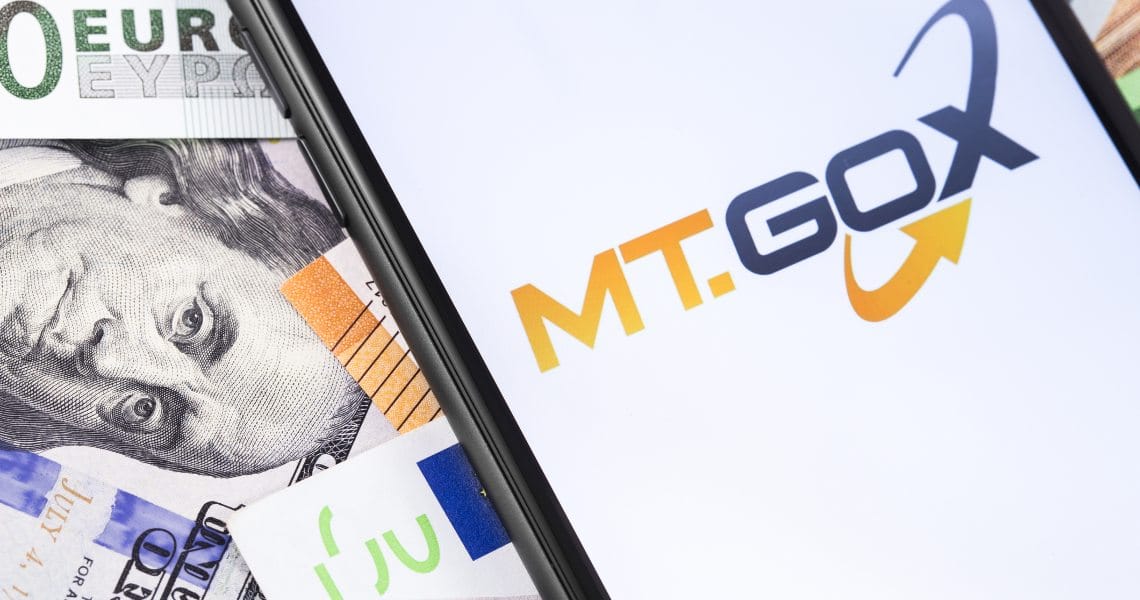The trustee of Mt. Gox has postponed the deadline for the final distribution of refunds to 2025, mitigating fears of a potential selling pressure of Bitcoin on the market and providing relief to creditors.
Let’s see all the details below.
The reimbursements to the creditors of Mt. Gox are postponed to 2025, reducing concerns in the market
The saga of Mt. Gox, one of the most controversial stories in the history of cryptocurrencies, has written a new chapter with the recent announcement regarding the deadline for reimbursements to creditors, which has been postponed to October 31, 2025.
This additional delay follows years of uncertainty and prolonged waiting for thousands of people who were victims of the collapse of the exchange in 2014. This occurred following one of the largest hacks ever in the criptovalute sector.
According to an official statement published on the Mt. Gox website, the trustee in charge of managing the recovered assets justified the extension with the fact that many creditors have not yet completed the necessary procedures to receive their funds.
Although a significant part of the recovery has already occurred, with approximately $6 billion distributed this year, a substantial amount of 44,900 Bitcoin, equivalent to about $2.8 billion, still remains in the Mt. Gox wallets.
Therefore, waiting to be distributed to the legitimate owners. We recall that Mt. Gox, which once dominated the cryptocurrency market as the largest exchange in the world, imploded in 2014.
In particular, it collapsed following a devastating hack that saw the loss of about 850,000 Bitcoin, an event that threw the crypto sector into chaos.
Since then, the process of recovery and reimbursement to creditors has been long and complicated, with ongoing legal and procedural battles that have slowed down the distribution of the assets.
After nearly a decade, in July 2023, Mt. Gox finally began to reimburse creditors, distributing approximately 9 billion dollars in recovered assets.
However, the process has not been without obstacles. The trustee of Mt. Gox has indeed indicated that a “considerable number” of creditors have not yet received their funds.
All this due to problems that arose during the reimbursement phase, as well as the failure to present the necessary documentation to complete the recovery procedures.
The effect on the market: alleviating concerns
The news about the Mt. Gox refunds has raised significant concerns within the crypto community. In particular, regarding the possible impact of a massive sale of Bitcoin on the open market.
At the beginning of the year, Bitcoin prices reacted negatively to the announcement of the distribution of the funds.
This is because many observers feared that the creditors, once they received their Bitcoin, might sell them immediately. Consequently generating a strong selling pressure and causing the cryptocurrency price to collapse.
With the decision to postpone the deadline for the final distribution to 2025, however, such fears could be partially mitigated.
The analysts at Coinbase, David Duong and David Han, have observed that this extension could “alleviate short-term concerns about an oversupply of Bitcoin”.
Although they warn that there might be room for greater volatility when on-chain funds start moving again.
An evolving crypto market
In the meantime, the cryptocurrency sector continues to grow and evolve, with Bitcoin remaining the undisputed leader of the market. However, the uncertainty regarding the future movements of Bitcoin related to Mt. Gox continues to be a concern for many investors.
The amount of Bitcoin held by the Mt. Gox wallets represents a significant portion of the market. Consequently, any sudden movement of these funds could cause fluctuations in prices.
Despite these concerns, some experts believe that the postponement of the repayment could offer the market more time to adapt and absorb potential sales without causing significant shocks.
Furthermore, many creditors of Mt. Gox, having waited so long, might decide to keep their Bitcoin rather than sell them immediately. Especially if they believe that the price of the cryptocurrency will continue to grow in the long term.
While the new 2025 deadline offers a temporary reprieve to market concerns, it remains to be seen how the repayment process will evolve and what impact it will actually have on the stability of Bitcoin.
The vicenda of Mt. Gox remains an important case study for the crypto sector. Specifically, highlighting the risks associated with the management of exchange and the importance of security in digital transactions.
With the postponement of the reimbursement, the investors and creditors of Mt. Gox now have more time to prepare for any future developments.
At the same time, the cryptocurrency market could benefit from a breather, with the possibility of continuing to grow without having to face a massive and sudden sale of Bitcoin.
Ultimately, the story of Mt. Gox is far from over. In any case, the recent postponement could represent an opportunity to stabilize the market and to reflect on how to best manage crisis situations in such a new and constantly evolving sector.





















